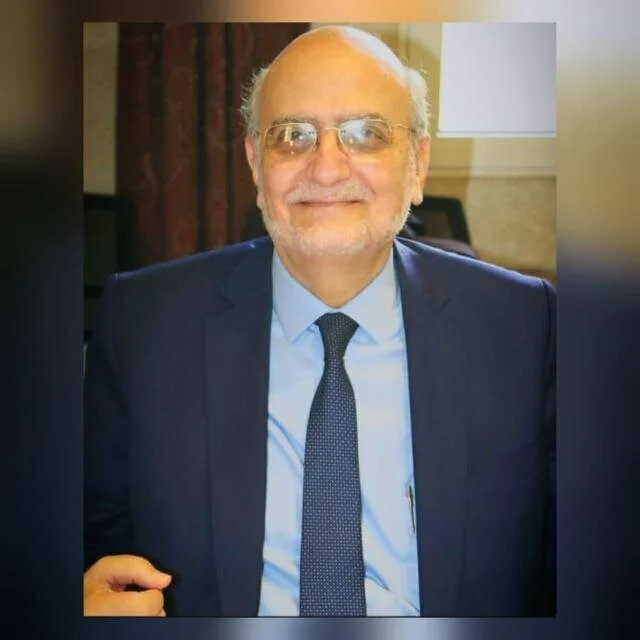Praying for Unity: A Phase of a Cultural Faith Process in the Making
Dr. Michel E. Abs
Secretary General of the Middle East Council of Churches
Today begins the Week of Prayer for Christian Unity, which runs from the eighteenth to the twenty-fifth of January. It is a week adopted by the churches of the world as an expression of their rejection of Christian division and of their yearning for unity of spirit, testimony, and role.
The Council has been associated with this activity, which was ecumenical par excellence at its outset.
It has been carrying out various tasks in order to make it a success. First, it is firmly convinced of the need for unity among Christians, and second, it has become part of the annual calendar of ecumenical work.
It was a wonderful sight to see, last Sunday, at the early opening of this week in the St. George's Orthodox Cathedral in one of the towns of Mount Lebanon, how the largest number of church leaders came together to celebrate and pray together in the context of keeping up with the activities of the Week of Prayer for Church Unity.
In addition, believers from different church affiliations attended and prayed together as well, this being an indication that ecumenical culture is no longer a mere elitist culture, but a trend adopted by many believers from different regions of the Middle East which accounts for the scope of the work of the Council.
We went through the same experience during the celebrations of the Season of Creation, that extended from the first of September to the fourth of October, when believers belonging to various churches gathered with spiritual leaders and prayed for reaching a shared awareness in protecting the environment and in preserving the natural heritage that the Creator entrusted us with to preserve intact for generations that are yet to come.
All that what was mentioned above constitute the basic elements of ecumenical culture, a culture that is gradually spreading across the world and becoming an integral part of the Faith Program of the Churches united in spirit as well as in aim.
We in the Council are prone to adopt these events throughout the year in order to sustain the dissemination of the values and goals that they represent. The set-up calendar specified for these celebrations represents various stages in which these activities intensify. This however does not prevent us from maintaining similar activities at a slower pace throughout the year, in order to preserve people’s interest and motivate them to follow the logic and values of specific occasions, be they unity or environmental protection.
These joint actions are indicators that show how much the ecumenical oil slick is expanding and how much ecumenical thought and values have become a part of the lives of large groups of believers around the world.
What is intended by the above is neither the integration nor the fusion between the various ecclesiastical institutions nor is it conceived of as an obstacle that stands in the way of maintaining the specific cultural diversity of each one of them. Rather, what is focused upon is that believers consider themselves one in Christ, and that the challenge of recognizing and accepting difference remain at the forefront of their sight, in contrast to the complete rejection among believers that had prevailed for long periods of time considered as shameful in the history of Christianity.
In our endeavors we draw our inspiration from the precepts of the Christian faith as well as from the words and deeds of the Incarnate Christ, as our Savior from sin. These constitute the two cornerstones, as well as the main steppingstones for us to move forward in this blessed direction despite remnant undesirable elements in our common history.
In this context, let us however draw attention to the fact that our ecumenism, based on the basic premises of our common Christian faith, includes all human beings, all of them, as God created them in His image and likeness and nurtured them with His love and care. Our ecumenism, which is Christian in its foundation, is a starting point for dialogue, harmony and brotherhood among all people on earth regardless of their specific affiliations.
These are the foundations for peace and stability for a better tomorrow for humanity.
Our trust is in the Lord for Him to enable us to persevere in the process of consolidating this stand which is ours.

